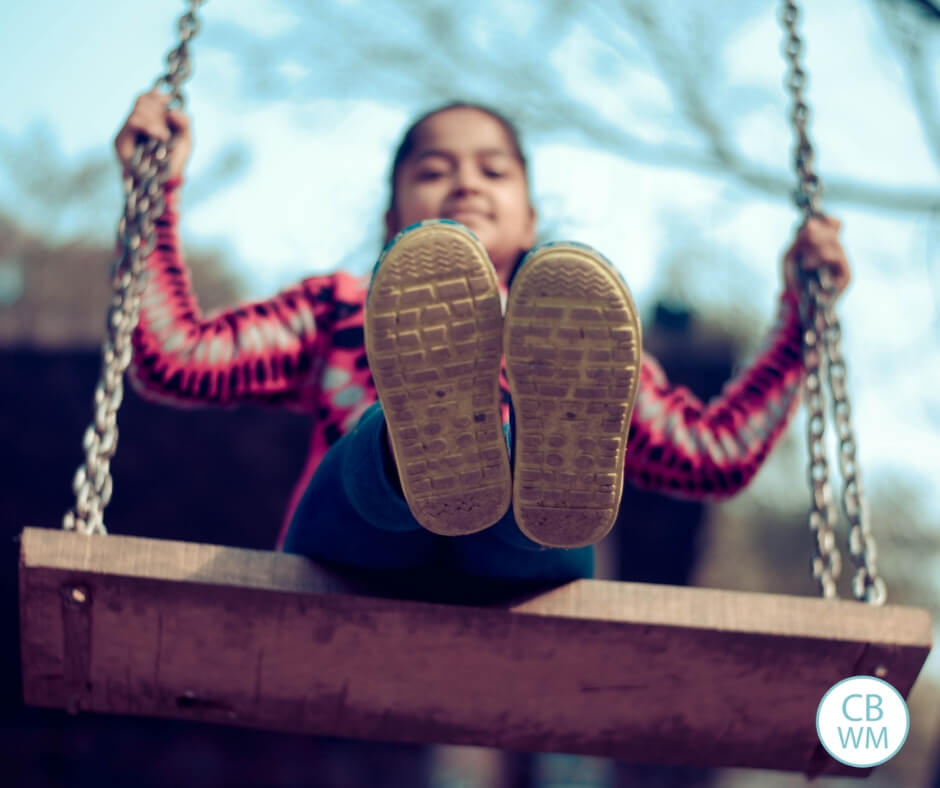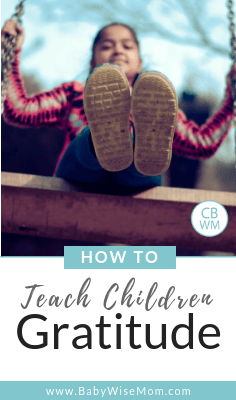Teaching Gratitude to kids. How to foster gratitude in children and help them learn to feel gratitude and express gratitude.

Most parents out there want their children to be able to display gratitude. We don’t want spoiled children who are ungrateful for what they are given. We remind our children to says thank you for even the simple compliments given by strangers.
I know there are many who would argue parents aren’t doing a good enough job at this, if they are doing a job of it at all. I think this is true in some cases, unfortunately. Entitlement is definitely a huge problem.
So if we, as parents, are doing the obligatory “say thank you” constantly, why are we still producing entitled children? That is an important question to think about. There are several paths I could take from that thought. Today, I want to take the gratitude path.
We need to teach gratitude in the home.
I have a quote that says, “Gratitude is the best attitude.” So true.
We start to teach our children about gratitude at a young age. When they first start to say “Thank you,” they most likely don’t know what it really means. Lack of understanding doesn’t mean you can’t teach them correct behavior. Understanding of behavior usually follows learning the actions of it for children.
Teaching Gratitude
Starting with teaching kids to say “thank you” is a nice first step. Sometimes actions precede beliefs. That is why we work to teach our children to practice saying, “Thank you” before they actually feel thankful for the service or the object offered.
But that definitely is not enough. That cannot be it.
This is a hard concept to teach children because it is abstract. One of my learning themes is “gratitude” with “thankful” as our vocabulary word. I always do pictures to illustrate our theme and our vocabulary word. Well, you can’t just pull an image off the internet that shows your child what “gratitude” or “thankful” mean.
Lead by Example
One of the most powerful ways to teach these abstract ideas is through your example. It always comes back to that. You are the leader on this. You need to express your gratitude for people and things in your life. You also need to set the precedent that everything in life is not a given. And even the things in life that are “givens” still deserve to be appreciated.
When the bagger puts my groceries in a bag at the grocery store, I could walk away without thanking him or her. It is their job right? They are getting paid for it; they don’t need a thank you on top of it. Just because something is someone’s job and getting your groceries bagged is a service we can count on doesn’t mean the person doing it doesn’t deserve a thank you.
You know who else deserves thank yous? Parents. Moms and Dads. Moms and Dads do things that are their job. It is a parent’s job to take care of the family. It is your job to provide food and shelter. It is your job to clean clothes. It is your job to get up with a sick child. These are all things you signed up for when you decided to be a parent.
But isn’t a thank you nice anyway? Even though it is your job, your responsibility, and your obligation, don’t you love a thank you?
So we need to teach our children gratitude for things, even the gimmies, because it is a nice thing to do.
And for those who are religious, think back to the story of the 10 Lepers. Ten were healed and only one thanked the Savior. All 10 were healed, but only the one who showed gratitude was made whole. Ingratitude is one of the most serious of sins, which makes gratitude one of the best virtues. So you want to teach your children gratitude not only because it is nice, but because ingratitude is a sin, and gratitude is a virtue.
Show your children your gratitude for your parents, for your teachers, for your children’s teachers, and for your friends. Show your children your gratitude for your country and for those who have made your country what it is. Also, show your children your gratitude for the Savior, Jesus Christ.
If you have a young baby, my advice to you is to tell your child “Thank You” every chance you get. Modeling behavior is a great way to teach it.
I discovered that I say thank you a lot. One of Brayden’s first words was “Thank you.” He used it correctly and has been good at it ever since. I since noticed that I thank for everything.
Kaitlyn has turned out the same. She thanks, and thanks even more efficiently. Since she talks in complete sentences, she says, “Thank you for my milk, Mama.” How sweet!
One thing I realized I wasn’t good at was saying “please.” When I asked for things, my tone and choice of phrasing implied ‘please,’ but I wasn’t good at saying it. I had to train Brayden to say please, and it is something I frequently reminded him of even when I didn’t have to remind to say thank you.
I vowed to do better, and I did. It took and takes effort on my part to add please when I ask for something, but I am doing it! Kaitlyn at 18 months was just as good at ‘please’ as she is ‘thank you.’ This has shown me how strong of an impact modeling during the first year is on your child.
Other Ways to Demonstrate Gratitude
There are lots of ways to show gratitude. We can show through words. Through notes. Through actions. Through gifts. Be an example of this and let your children see your expressions of gratitude. Express your gratitude in your prayers. Teach your children scripture stories that tell they both why they should be grateful and how others expressed and showed gratitude. Serving others shows the gratitude we have for our own blessings.
When our kids were young (1.5 and 3.5), we did some lessons at home on gratitude. After one lesson, we got out a huge piece of paper. The family gathered around and drew pictures of things we were thankful for.
It started off slowly, but Brayden quickly caught on and started drawing item after item without pausing to think. This is how gratitude works. When we think with a grateful heart, it is easy for us to recognize the many things we have to be thankful for. We focus on the good rather than the bad. Teaching your child to be grateful is teaching your child one secret to being happy.
Keep in mind that teaching gratitude is not a simple, single lesson. Again, it is taught through example, which means it needs to be part of your lifestyle. It needs to be who you are, and it will then become who your children are.
Conclusion
This is just the first step in teaching gratitude and that is expressing it. The next step is teaching children to learn to feel gratitude. Read more on helping children (and you!) feel gratitude here.
For more on gratitude and activity ideas, see:
- Our Favorite Attitude
- ‘Thankful Pumpkin’ for Instilling Gratitude in Kids this Fall
- Thankful Basket
- Apples and Thankfulness
Ideas for this post inspired by this talk from Thomas S. Monson

